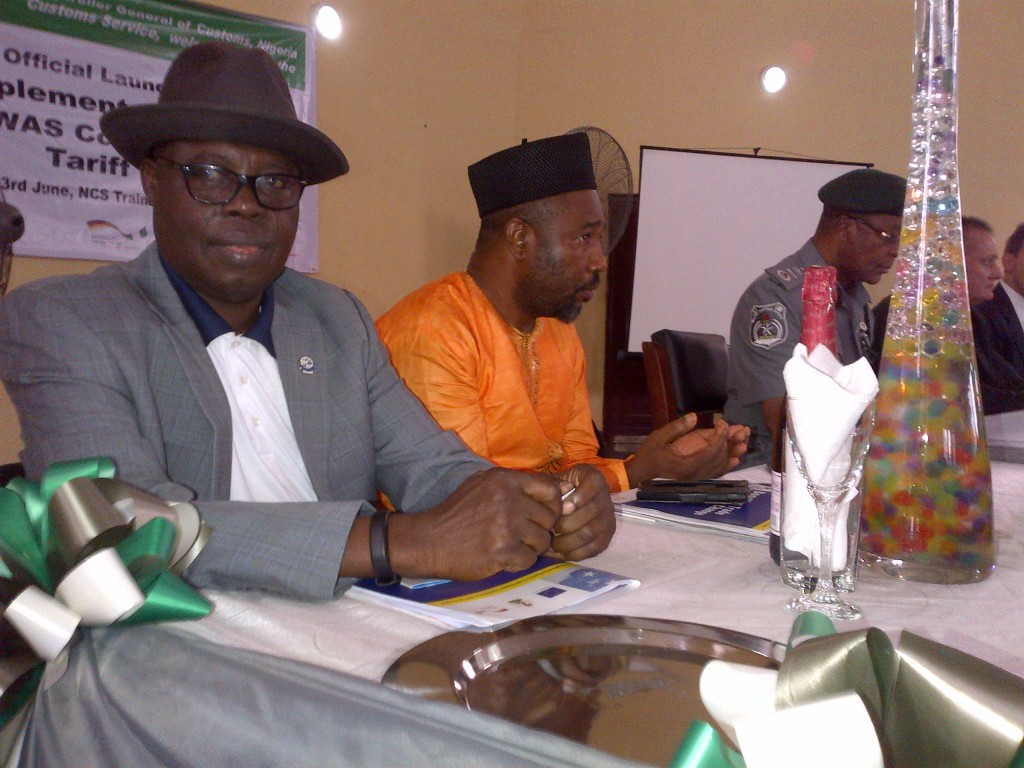Stakeholders in the nation’s maritime industry have raise an alarm over what benefit Nigeria as a country as well as the nation’s business community stands to gain as Nigeria begins implementation of the Economic Community of West African States (ECOWAS) Common External Tariff (CET).
Speaking at the Launch of the Implementation of ECOWAS CET in Lagos yesterday, the National President, National Association of Government Approved Freight Forwarders (NAGAFF), Dr. Eugene Nweke while commending the organizers of the programme expressed his reservation that the workshop did not take into cognizance the expected roles of the Nigerian freight forwarders in the new dispensation.
Nweke while recalling that the EU representative’s speech centred more on the need for Nigeria to protect its market, however observed that they were expecting that protecting their market would go with some elements of competition internationally.
“If the competition is anything to go by, as a freight forwarder knowing fully well that in the past 20 years, we were dependent on the influx of import into Nigeria and we know that by such action, our job is limited because we are like a people concluding the jobs initiated by another forwarder from the ports of origin.
“So, we want to see a situation whereby this CET will open a horizon where we engage ourselves and begin to assume a role required of us to be exporting to our neighbouring countries so that we could go there and conclude and not open a window whereby other nations, third nations like we call them, 1.5 million people will come into our market and dominate us”, Nweke said.
On his part, the National President of the Association of Nigerian Licensed Customs Agents (ANLCA), Prince Olayiwola Shittu demanded that just as the European Union (EU) had made success of Europe, ECOWAS should in like manner make success of the West Africa Sub-region adding that the role of Nigeria in the ECOWAS cannot be equated to the role of countries in the European Union because looking at their population and their economy, ECOWAS countries were dependent on the Nigerian economy for them to survive.
According to Shittu,” So, we must protect ourselves, we must make sure that CET does not kill even the local industries that we are managing in this country. There must be a deliberate effort on the part of the government, that was why they have to put the Import Adjustment Tax and that Import Adjustment Tax was agreed upon as part of the protocol over a 5-year moratorium. We need to understand what it is meant for. If the federal government in the review of the tariff is satisfied that IAT is no longer necessary, it will be removed and each country is expected to look for a soft landing for their country”.
He therefore called on the stakeholders to take a step further towards educating themselves on the provisions of CET saying that,” Concerning what he was saying about the national code, the abuse of the system is always in the operation, not in the system itself and over the years, it is the operation in the ports that has bastardized no matter how good a system is going to be.
“SO the issue is not about the system, we have to be on the look out to make sure that those who are supposed to operate this CET do not abuse it. That is a challenge for all of us but you can only challenge them if you are knowledgeable by yourself, lack of knowledge is the reason why we are being taking for granted”, he said.

